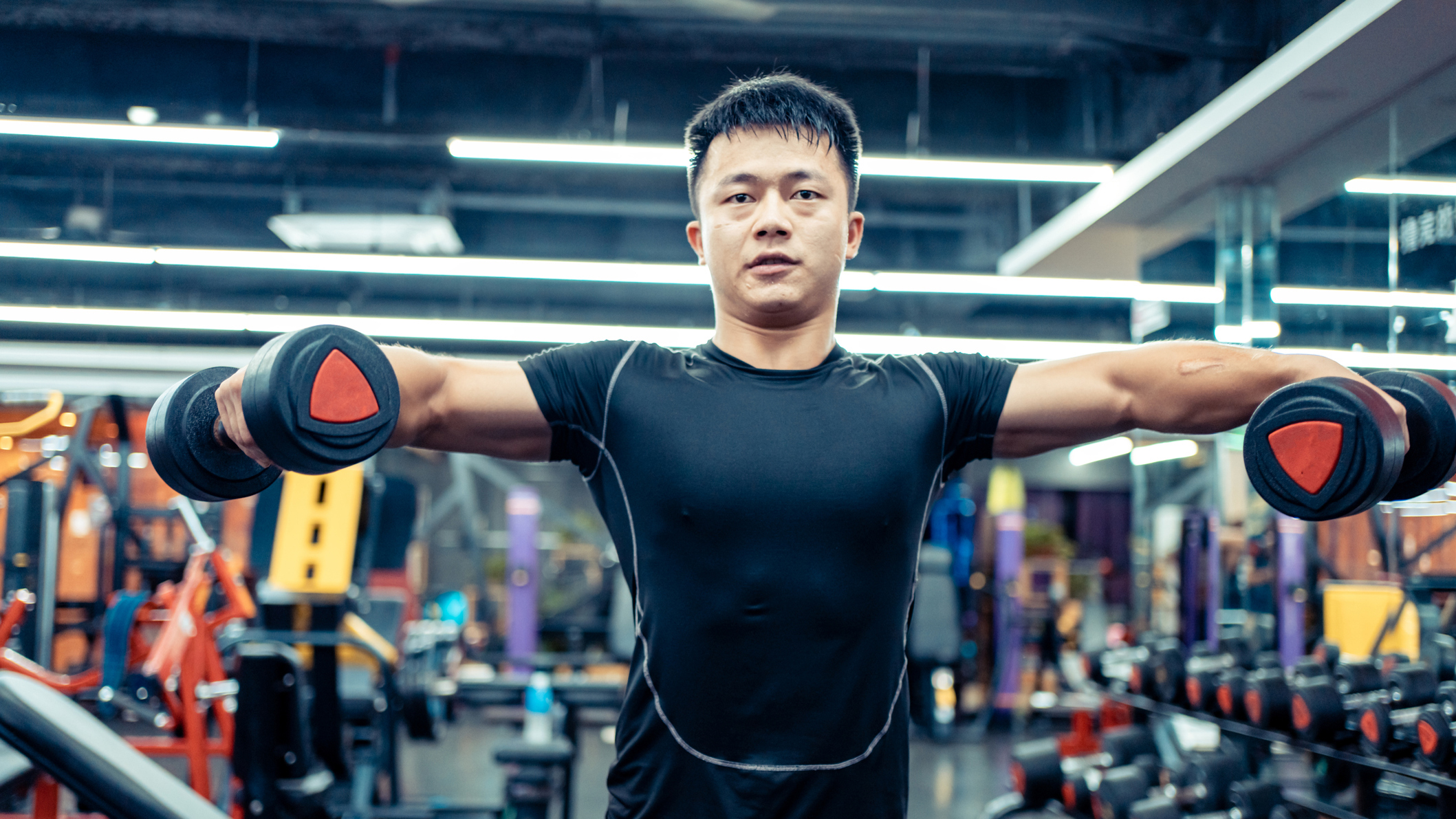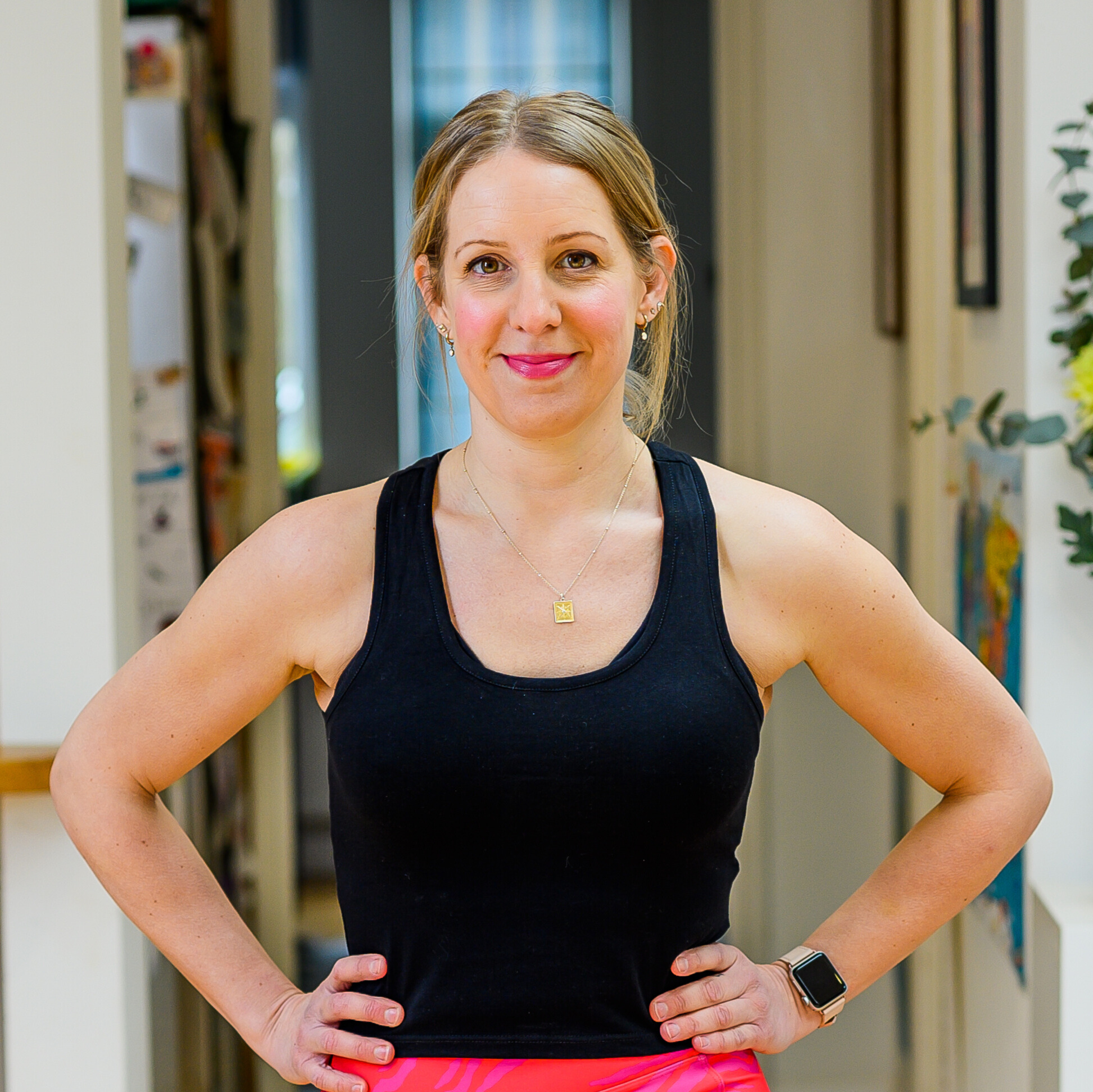Build strong shoulders with these five simple moves that come recommended by a trainer
Five exercises you can do at home to strengthen this important joint


Shoulders need to be strong and flexible so we can get dressed, lift groceries, drive a car, carry children, cook and do other daily activities to stay independent. It’s important to keep this area flexible and operating in its full range of motion too, so that you can avoid injury and stay limber.
I’m a personal trainer and I always program shoulder exercises in my clients’ fitness plans. Here are five of my favorite ones, which you can do from home.
All you need to get started is a mat, resistance band, kettlebell or dumbbell and some sliders. If you don’t have sliders, you can use two folded towels.
How to do the shoulder workout
A post shared by Personal trainer Oxford (Maddy Biddulph)
A photo posted by maddybiddulphpt on
The workout
- Banded slides from bear hover: 2-3 sets x 8-12 reps
- Kneeling single arm kettlebell press: 2-3 sets x 8-12 reps
- Front raise to side raise: 2-3 sets x 8-12 reps
- Arnold press variation: 2-3 sets x 8-12 reps
- Up down plank: 2-3 sets x 8-12 reps
Banded slides from bear hover
Sets: 2-3 Reps: 8-12
- Begin on your hands and knees with your shoulders stacked over your wrists. Put the resistance band around your wrists, and place one hand on each slider. Lift your knees about one inch off the floor so they are floating above the mat.
- Slide your left hand forward and back to the start position, then slide it out to your left and back. Repeat the move on your right side.
- If you like, try this move without a band first, and then progress to a band.
Kneeling single arm kettlebell press
Sets: 2-3 Reps: 8-12
- Kneel on the mat and hold a kettlebell in one hand.
- Squeeze your core and glutes to stabilize, then raise the kettlebell into a full arm extension.
- Slowly and with control, lower your arm back to the starting position.
- Repeat for 8-12 reps then swap arms.
Front raise to side raise
Sets: 2-3 Reps: 8-12
Start your week with achievable workout ideas, health tips and wellbeing advice in your inbox.
- Stand with feet shoulder-width apart, with a dumbbell in each hand in front of your thighs with palms facing your body (pronated grip)
- Keeping knees slightly bent, lift both arms in front of you to shoulder level, then slowly and with control lower the dumbbells back.
- Lift arms out to the side, again stopping at shoulder height. Lower with control and good form.
- Repeat this two-move combo for 8-12 reps.
Arnold press variation
Invented by Arnold Schwarzenegger, the Arnold press is a dumbbell shoulder press variation that targets all three shoulder deltoids (posterior, medial, and anterior). This slowed-down variation challenges you to do a wide shoulder rotation at the start of the exercise, rather than during the ‘press’ phase. Here’s how to do it.
Sets: 2-3 Reps: 8-12
- Stand with feet hip-width apart with a dumbbell in each hand and raise the weights to shoulder height, palms facing your face.
- Rotate your arms out so that palms are facing forward and elbows are out to the sides.
- Extend your arms up in a regular shoulder press position, bringing the weights towards each other in a triangle shape overhead.
- Reverse each move back to the start position, ending with the weights in front of your face again.
Up down plank
Sets: 2-3 Reps: 8-12
- Start on your forearms in a low plank position, with your elbows stacked under your shoulders and your feet hip-width apart.
- Lift up into a high plank position by pressing your left hand into the floor to straighten your arm then repeat with your right arm to come up to a high plank position with palms beneath the shoulders.
- After a pause, lower yourself back onto your left and right elbows returning into a low plank position.
Why train your shoulders
Incorporating shoulder training into your fitness routine is essential for overall strength, posture, stability and injury prevention.
The shoulder joint is one of the most delicate joints and when the muscles and ligaments around it are weak, movement can become altered, creating instability and often leading to injury.
To avoid this, train the rotator cuff (the muscles that stabilize the shoulder) as well as the deltoids (the muscles that surround the shoulder).
Maddy Biddulph is a journalist specializing in fitness, health and wellbeing content, with 26 years in consumer media working as a writer and editor for some of the bestselling newspapers, magazines and websites in the US and UK, including Marie Claire, The Sunday Times and Women’s Health UK.
She is a CIMPSA-certified PT and works one-on-one with clients, as well as running Circuits Club classes which mixes cardio and strength training and chair-based exercise classes for seniors.
